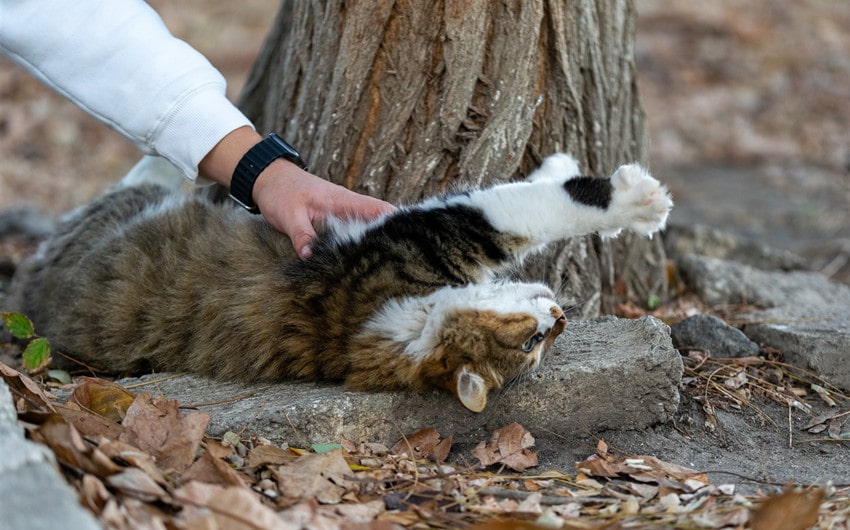Softness as Strength: Learning to Be Gentle in a Hard World

We grow up being told to be strong — to hold ourselves together, to keep going, to stay unshaken no matter what the world throws our way. Strength becomes a kind of armor we learn to wear early. We associate it with resilience, with survival, with being unbreakable.
But there’s another kind of strength, one that doesn’t look like steel or sound like certainty. It’s quiet. Unassuming. Gentle. It lives in the way we care, in the way we forgive, in the way we keep showing up even after being hurt. It’s the strength of softness — and it might just be the most powerful kind of all.
1. The Misunderstanding of Strength
We often mistake hardness for strength because it looks impressive. It looks like control, like the ability to move through life untouched. But being untouchable isn’t the same as being strong. Sometimes it’s just another form of fear.
Hardness is protection — necessary at times, yes — but it can also distance us from connection, from vulnerability, from love.
Softness, on the other hand, is the courage to stay open. It’s the willingness to feel deeply, to risk being changed by what we experience. It’s choosing empathy when bitterness would be easier.
Real strength isn’t about never falling apart; it’s about learning how to be gentle with yourself when you do.
2. The Armor We Build
We build walls without even realizing it. Maybe it started as self-preservation — keeping our hearts safe after betrayal, disappointment, or grief. But over time, those walls stop protecting and start isolating.
We tell ourselves we’re “fine.” We shrink our needs to seem easy. We harden our hearts to avoid being hurt again. But that hardness doesn’t erase the pain; it just traps it inside.
Softness asks something braver: to take off the armor and face life bare. To admit that we feel — and that feeling doesn’t make us fragile. It makes us human.
3. The Power of Kindness
Kindness might seem simple, but it’s revolutionary in a world that rewards competition and cynicism. It takes strength to meet cruelty with grace, to listen instead of react, to extend compassion even when no one’s watching.
Softness doesn’t mean being passive. It’s active, intentional, and often harder than anger. It means choosing gentleness when you have every reason not to. It’s saying, I will not let the world make me cold.
Kindness changes more than just others — it changes us. It softens the sharp edges that build up from disappointment, and it turns survival into connection.
4. Softness Toward Yourself
It’s easy to be kind to others and cruel to ourselves. We speak to ourselves in ways we’d never speak to someone we love. We hold ourselves to impossible standards, measuring worth through productivity or perfection.
But self-compassion is one of the purest forms of strength. It’s the quiet rebellion of saying, I deserve care too.
Softness toward yourself means resting without guilt. It means forgiving your past selves. It means understanding that healing is not linear — that you can be both proud of how far you’ve come and tender with the parts still learning.
You don’t have to be your own critic to keep growing. You can be your own comfort, too.
5. The Courage to Feel
Feeling deeply in a hard world can feel like walking barefoot across glass. It’s easier to numb out, to scroll, to distract, to build distance. But feelings are not weaknesses; they’re teachers.
Grief, anger, joy, hope — they all carry messages. When you let yourself feel, you gain access to your truest self.
Softness means letting emotion move through you instead of fighting it. It means crying without apology, laughing without restraint, and admitting when something hurts.
Strength is not in suppressing emotion — it’s in surviving it, honoring it, and letting it change you.
6. When the World Demands Hardness
There are moments when softness feels dangerous — when the world is loud and unfair, when kindness is mistaken for naivety. It’s tempting to toughen up, to protect your tenderness behind walls of apathy or cynicism.
But strength doesn’t mean you have to match the world’s hardness. Sometimes it means being the one who refuses to.
You can speak firmly and still be gentle. You can set boundaries without losing compassion. You can love deeply and still say no.
Softness is not about submission — it’s about intention. It’s the strength to choose presence over defense, even when the world tells you not to.
7. The Healing Power of Gentleness
Gentleness is what allows healing to happen. It’s the space where pain can soften into understanding, where fear can dissolve into trust.
When you treat yourself and others with gentleness, you create safety. And safety is what allows us to grow.
Think of how plants thrive when cared for — watered, spoken to kindly, given light. Humans are no different. We don’t bloom through pressure; we bloom through patience.
The world doesn’t need more perfection. It needs more gentleness — in how we speak, how we love, and how we see one another.
8. Learning to Stay Open
Staying open after being hurt is one of the hardest things you’ll ever do. The instinct is to close off, to protect yourself from the possibility of more pain. But openness doesn’t mean letting everything in — it means not shutting yourself out.
You can learn to trust slowly. You can take your time. You can open your heart one careful inch at a time.
Softness says: I will not let pain turn me into someone I’m not. It’s the quiet vow to remain tender even when tenderness feels risky.
9. Redefining Resilience
Resilience isn’t just endurance — it’s flexibility. It’s the ability to bend without breaking, to adapt without losing your essence.
Softness is the foundation of that resilience. Hard things crack under pressure; soft things yield and return. Think of water — fluid, adaptable, yet powerful enough to carve through stone.
To be soft is to trust your own elasticity — that even when life bends you, you’ll find your shape again.
10. Living Softly in a Hard World
To live softly doesn’t mean to live small. It means to live fully, honestly, and with compassion.
It means allowing yourself to slow down, to listen more than you speak, to notice beauty in ordinary moments. It means refusing to build your worth on how much you can bear and instead recognizing your value in how much you can feel.
A soft life isn’t an easy one. It’s full of tenderness and vulnerability, and that takes courage every single day. But it’s also full of warmth, connection, and quiet power.
Softness doesn’t mean being untouched by the world; it means being deeply touched — and choosing to stay open anyway.
Closing Thoughts
Strength has many faces. Sometimes it looks like standing tall, and sometimes it looks like kneeling down to rest. Sometimes it’s the loud fight for what’s right, and sometimes it’s the whisper that says, Keep going.
But the kind of strength that changes us, the kind that heals instead of hardens, is the kind born from softness.
So let yourself be gentle. Let yourself care too much. Let yourself cry, and forgive, and love without guarantees.
Because in a world that tells you to toughen up, choosing tenderness is a radical act.
And maybe — just maybe — that’s where the truest strength lives.


